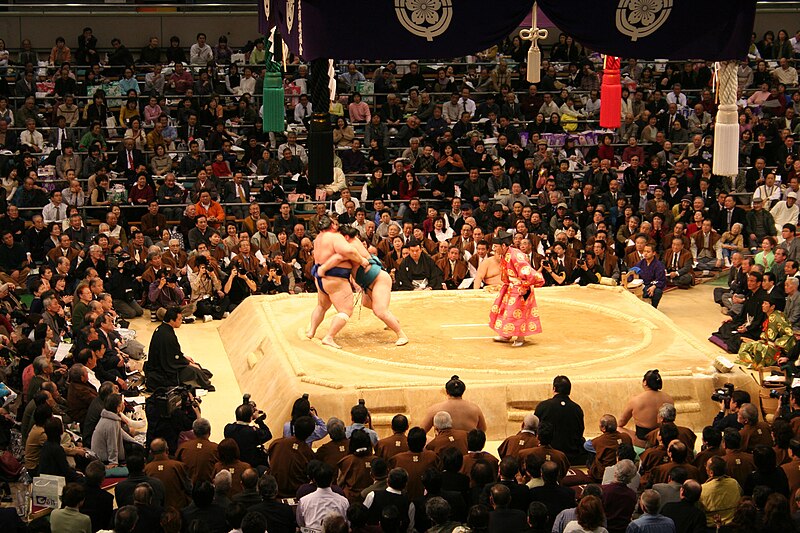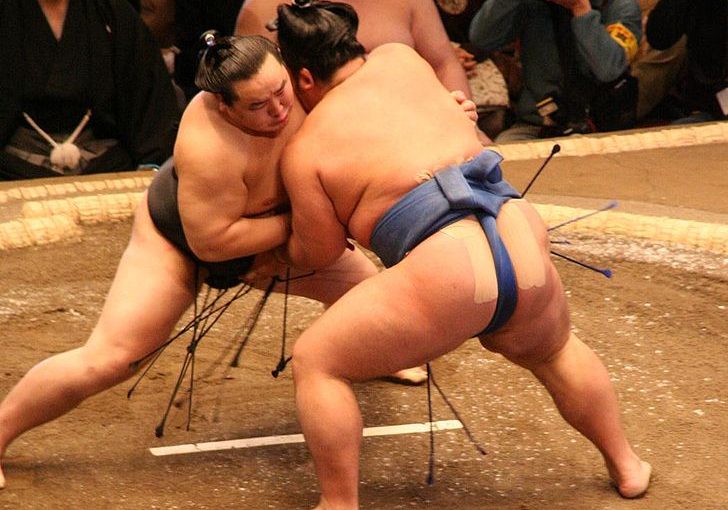Sumo wrestling, with its colossal athletes and lightning-fast throws, is a captivating spectacle that has enthralled Japan for centuries. More than just a sport, sumo is deeply embedded in Japanese culture, steeped in tradition, and rich with rituals. So, before you get swept away by the energy of a sumo match, take a moment to delve into this fascinating world.
The Wrestlers: Building Mountains of Muscle
Sumo wrestlers, known as Rikishi, dedicate their lives to this demanding sport. They adhere to a strict training regimen and a unique diet high in protein and carbohydrates to build their massive physiques. Wrestlers typically wear only a mawashi, a special belt made of silk. Their topknot hairstyles, or chonmage, are a symbol of their commitment to the sport and tradition.
The Dohyo: A Sacred Space for Sumo Battles
The sumo ring called a dohyo, is a circular, elevated platform made of packed clay. A straw rope lining the edge signifies the sacred nature of the space. Before each bout, wrestlers perform a ritual purification ceremony to cleanse the dohyo and ensure a fair match. Stepping outside the dohyo during a match results in disqualification.
The Bouts: A Clash of Power and Technique
A sumo match is a test of strength, agility, and strategy. The ultimate goal in Sumo is to either drive your opponent out of the ring or make any part of their body besides the soles of their feet come into contact with the dohyo. Matches are often surprisingly quick, decided in a matter of seconds. Referees, dressed in traditional attire, meticulously observe the action to declare the winner.
The Grand Sumo Tournaments: Witness Sumo’s Grandeur

Six grand sumo tournaments, or basho, are held annually across Japan, with three in Tokyo. The prestigious Ryogoku Kokugikan, also known as the National Sumo Stadium, is the iconic venue for the Tokyo tournaments. Guests staying at furnished apartments in Tokyo, such as the elegantly designed Ascott Marunouchi Tokyo, can conveniently reach the stadium via an easy drive.
Beyond the Ring: Sumo’s Cultural Significance
Sumo wrestling holds a special place in Japanese culture. It is a national sport with a rich history dating back centuries. Sumo wrestlers are revered figures, embodying values like discipline, strength, and respect. Understanding Sumo’s traditions and customs allows you to appreciate this unique sport on a deeper level.
